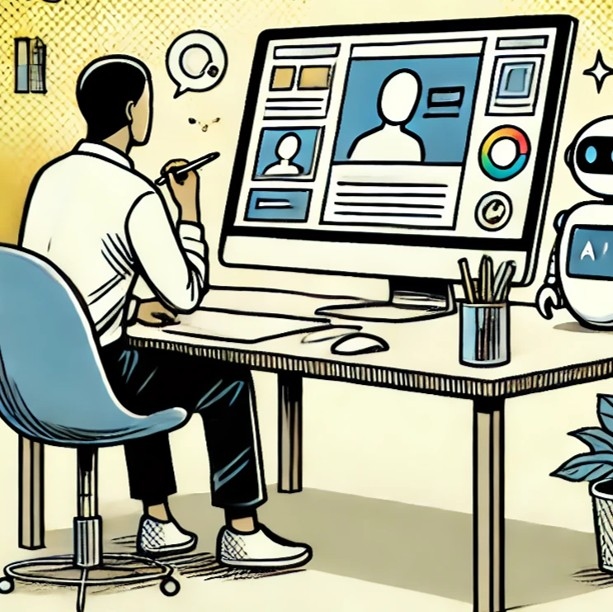The human-centered systems lab (h-lab) headed by Prof. Dr. Alexander Maedche at the Institute for Information Systems (WIN) focuses in research, education, and innovation on designing human-centered systems for better work and life.
Our mission is to create impactful knowledge to design human-centered systems for productivity and well-being through relevant and rigor scientific research. We build on (generative) artificial intelligence (AI) and biosignal sensor technologies in our research and follow a human-centered design process. We pursue a socio-technical research paradigm and combine empirical and design science research.
We contribute to the fields of human-computer interaction (HCI) (Mensch-Computer Interaktion) and information systems (IS) (Wirtschaftsinformatik). We believe that delivering cutting-edge knowledge and inspiring education, as well as an ongoing dialog with the public need to go hand in hand to maximize the impact of our work in organizations and society.
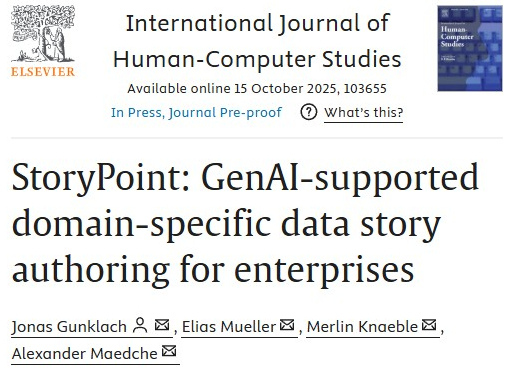
The International Journal of Human-Computer Studies has published the paper "StoryPoint: GenAI-supported domain-specific data story authoring for enterprises". The paper is co-authored by Jonas Gunklach, Elias Mueller, Merlin Knaeble, and Alexander Maedche from the human-centered systems lab (h-lab).
More
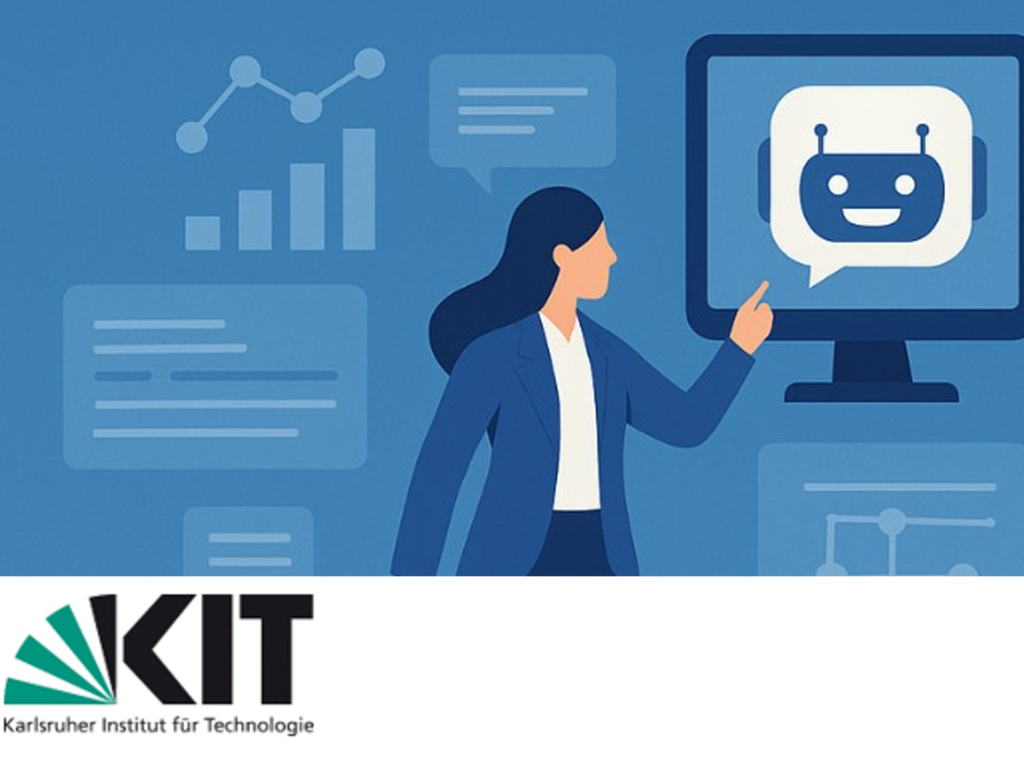
The position offered at the human-centered systems lab (https://h-lab.win.kit.edu/) of the Institute of Information Systems (WIN) (https://www.win.kit.edu/) is embedded in the third-party funded research project "MenschKI!" (https://menschki.org/). In close collaboration with partner companies and the non-profit association UIG e.V. (https://nutzerfreundlich.digital/), the project aims to design and pilot new approaches for personalized learning and the continuous adaptation of generative AI-based information systems to increase employee productivity and well-being. In addition, scalable transfer concepts for transfer to other companies will be developed.
More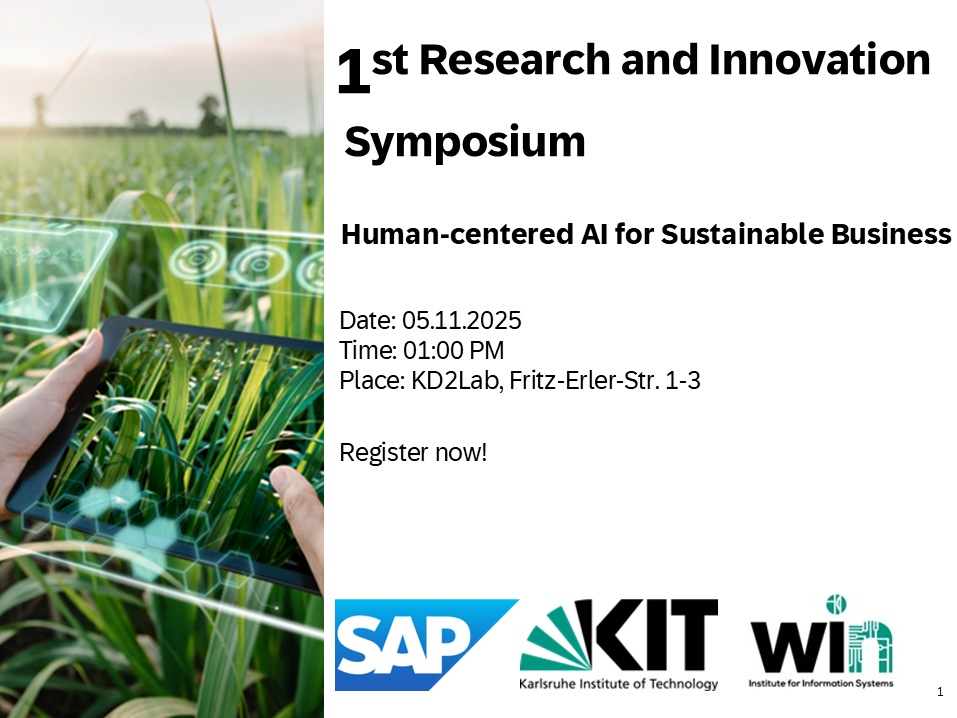
Human-centered AI meets Sustainability! On November 5th, 2025 experts from SAP and KIT will share insights on how AI for enterprise systems should be designed to support sustainable business transformation following a human-centered design approach.
More
We welcome Simon Rapp as a new team member and doctoral researcher at the human-centered systems lab (h-lab) of Prof. Mädche at the KIT Institute for Information Systems (WIN).Simon holds a Master of Science degree in Information Systems with a specialization in Artificial Intelligence and a Bachelor of Science degree in Information Systems with a specialization in Systems Engineering, both from KIT.
More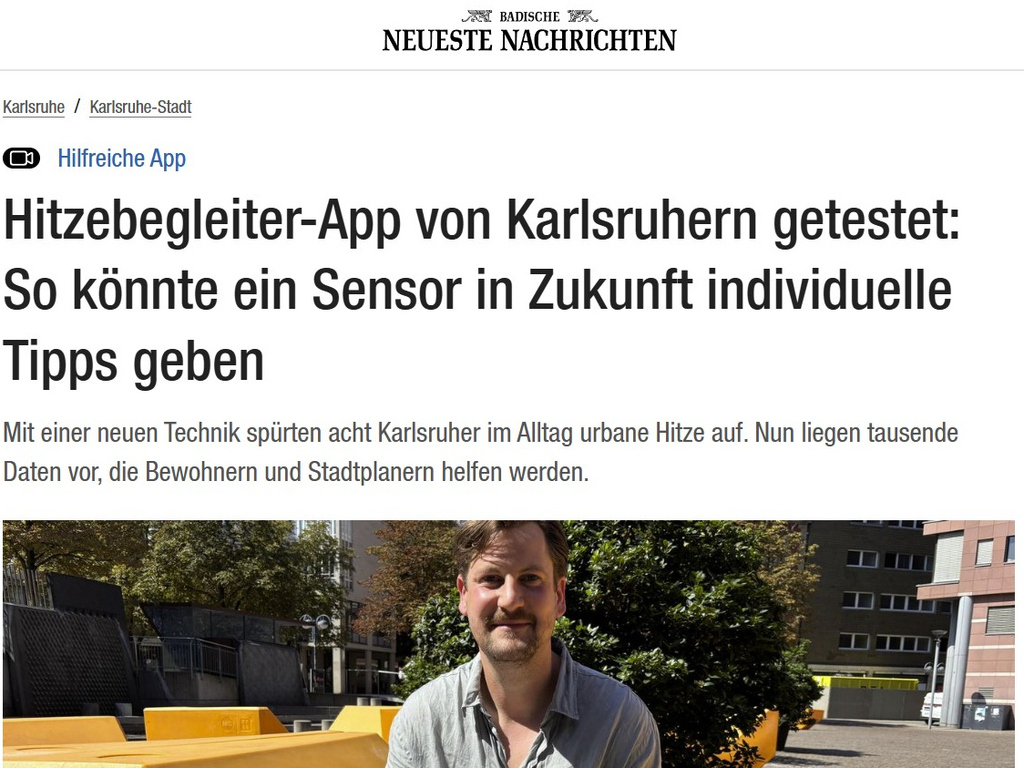
We were pleased about the article in the Badische Neueste Nachrichten (BNN) reporting insights from the feasibility study of the heat companion research project conducted by Niklas Heyden of the Institute for Information Systems (WIN), human-centered systems lab. The heat companion research project provides citizens with a portable environmental sensor and a companion smartphone app to record micro-climate data (temperature, humidity, air quality) in their daily routines.
More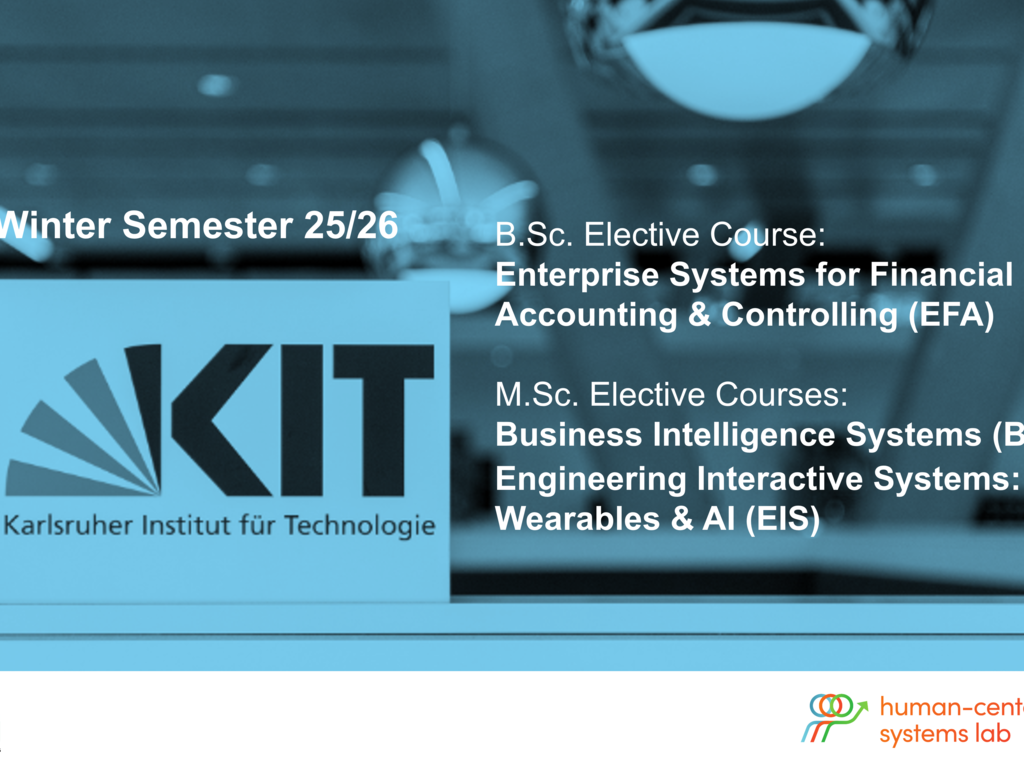
In the upcoming winter semester, the human-centered systems lab will offer one B.Sc. and two M.Sc. electives lectures. The B.Sc. Lecture “Enterprise Systems for Financial Accounting & Controlling (EFA)” will be offered by Dr. Christian Fleig (Lidl) and introduce foundations enterprise system concepts using the example of SAP S/4HANA.
More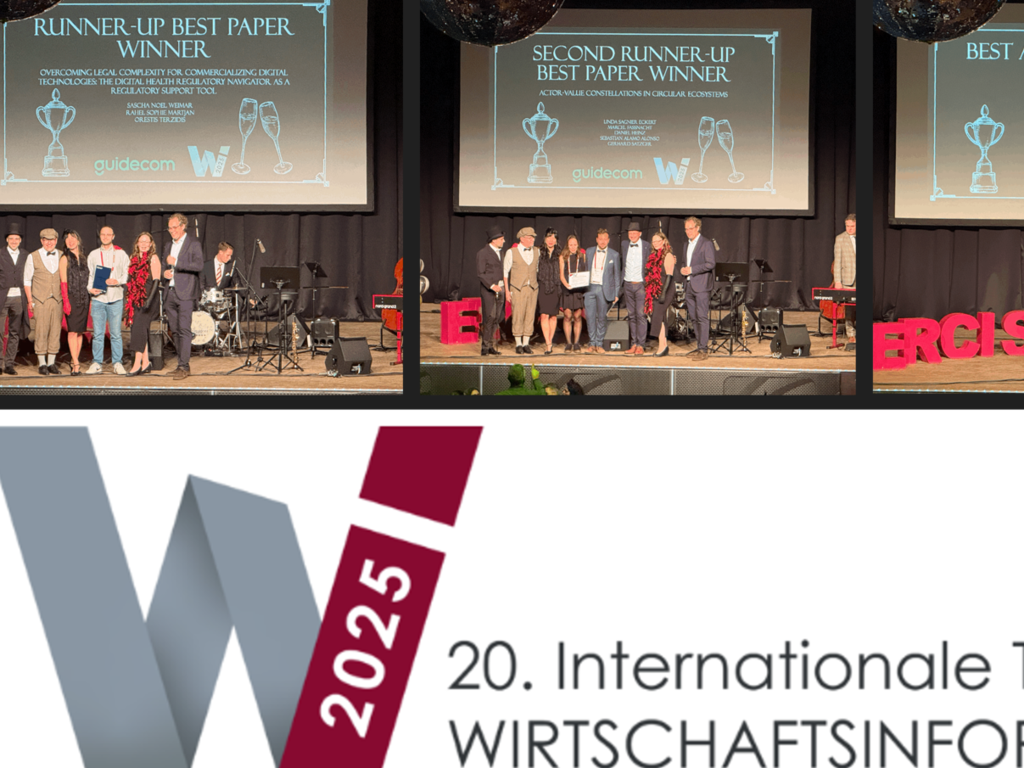
The KIT had a very successful award session at “Internationale Tagung Wirtschaftsinformatik 2025” (#WI25) - demonstrating our academic quality and adding to KIT’s reputation within the community. Two out of the three best papers were contributed by KIT teams:
More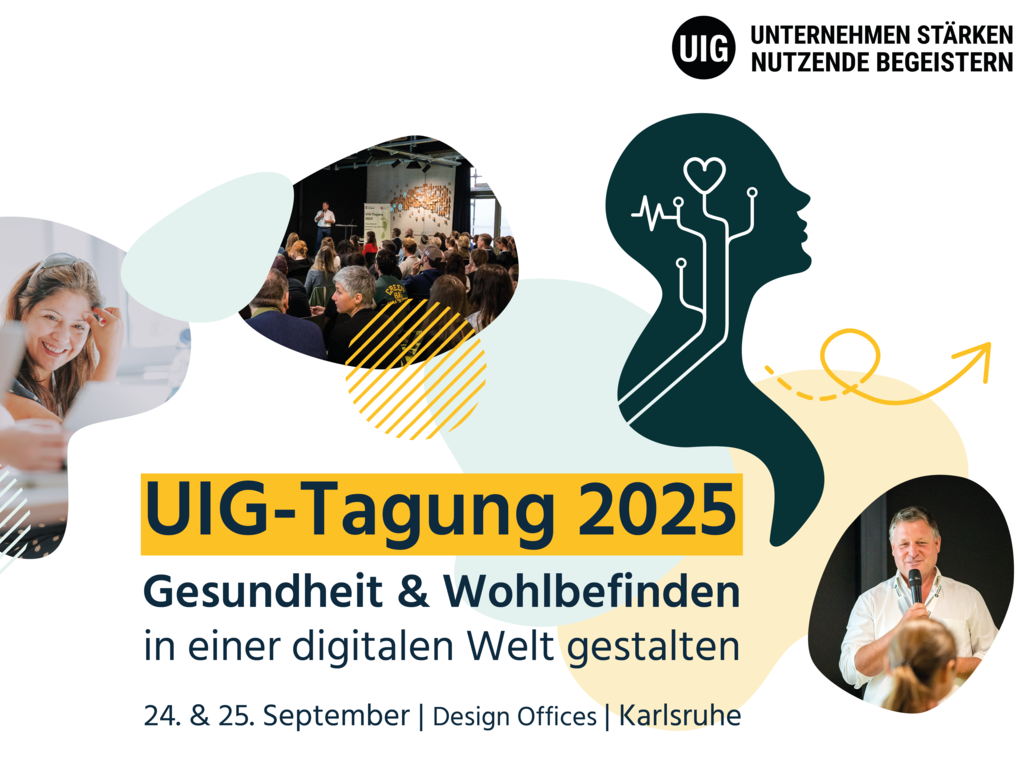
Digital products and services are no longer simply tools,but are becoming increasingly integrated into everyday life and our working environment. This central role also brings with it a responsibility to design digital products and services in such a way that they do not negatively impact health and well-being of their users. At the same time, digital products and services are playing an increasingly important role in the healthcare sector – be it through the ePA (electronic patient record), which enables the exchange of medical data, through mental health bots, or through wearables and fitness apps.
More
As part of our speaker series "Decision & Design", Prof. Pierre-Majorique Léger from HEC Montreal gave a talk at the KD2Lab on September 12, 2025. As AI becomes deeply embedded in daily life, it enhances efficiency but also risks encouraging uncritical reliance on its recommendations, especially when user interfaces prioritize automation and simplicity. Drawing on a series of NeuroIS experiments, he argued in his talk for a shift from “Don’t make me think” to “Make me think,” highlighting the need for user interface designs that foster critical engagement and responsible AI use.
More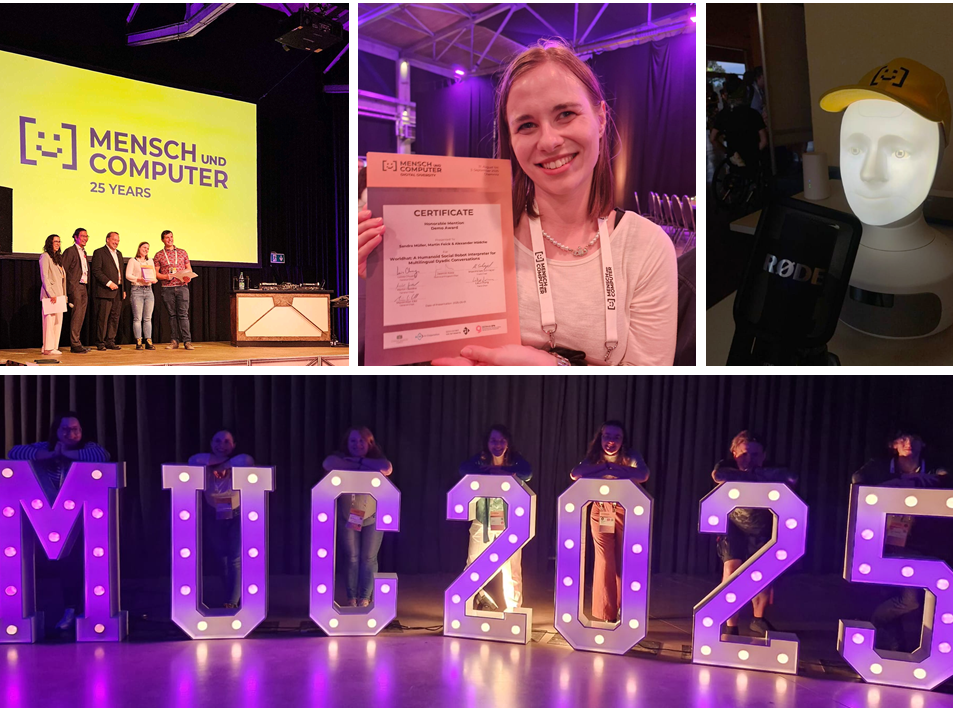
We are delighted to receive the Honorable Mention Award at the Mensch und Computer (MuC) 2025 conference in Chemnitz for our demo paper "Worldhat: A Humanoid Social Robot Interpreter for Multilingual Dyadic Conversations", a joint work by Sandra Müller, Martin Feick and Alexander Maedche from the human-centered systems lab (h-lab) of the Institute for Information Systems (WIN).
More
In partnership with EnBW , students worked on a highly relevant challenge in designing Human-AI Interaction for enhancing customer experiences for services & sales. 8 student groups showcased their unique prototypes and research journeys, all grounded in the human-centered design process. A diverse range of thoughtful, creative, and practical prototypical solutions, each shaped by the group’s individual lens on the problem space, were presented.
More
The Institute for Information Systems (WIN) will be present with one full paper and one late-breaking work paper at the ACM Symposium on User Interface Software and Technology. UIST is the premier forum for innovations in human-computer interfaces and brings together people from diverse areas, including graphical & web user interfaces, tangible & ubiquitous computing, virtual & augmented reality, multimedia, new input & output devices, human-centered AI, and CSCW.
More




